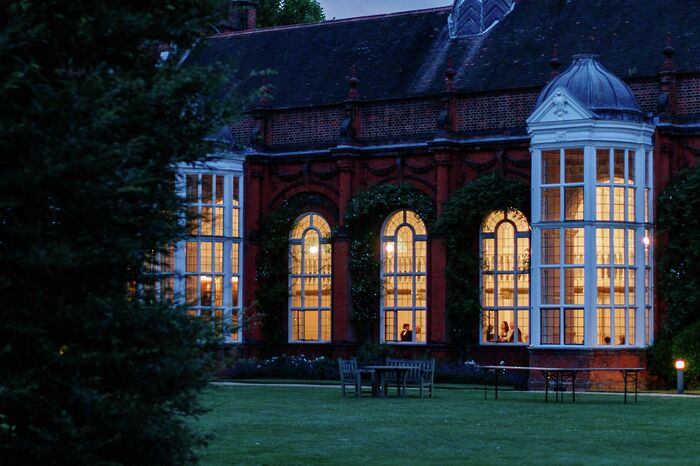Celebrating LGBT+ voices in Cambridge’s museums
Jess Sharpe visits Cambridge museums’ ‘remixed’ exhibitions

In September, the doors of five of Cambridge’s museums - including two museums with scientific collections - were opened for a group of 25 student, staff and volunteer contributors to ‘remix’ their collections. Following the success of the 2018 Museum Remix event, which centred around BME experiences, this year’s event followed institutions across the UK in uncovering and showcasing LGBT+ stories. ‘Remixing’ art and history museums which focus on creativity and personal experience is perhaps an easier task. In contrast, how do you ‘remix’ a collection of scientific instruments or specimens?
While gender and sexuality are discussed in some form within the walls of many museums, scientific collections often seek to present the truth and certainty of scientific discoveries, not the personal lives of practitioners or the variety of experiences embodied by each object. Yet, silencing conversations about sexuality and gender means also silencing critical discussions of power and discrimination. No museums are neutral spaces.
For a head start on the daunting task of remixing just a fraction of the University’s five million artefacts, Bridging Binaries volunteer guides led tours of each participating museum. At the Polar Museum, the tour guide came to a halt opposite a display case holding two penguins and recounted the experience of a polar explorer and his observations of penguin behaviour. He noticed two penguins mating, dismounting, swapping positions and mating again, and came to the conclusion that they were displaying homosexual behaviour. In response, he recorded this section of his field notes only in Ancient Greek.
Museums are spaces where we can uncover and rediscover stories that have been suppressed due to their exclusion from expected norms. They allow us space to recognise that scientific work will always embody these norms. The veil of truth, accuracy and validity held over ‘science’, in museums and practice, can obstruct diverse, evidence-based research. Instead these experiences need to be reframed as essential, and integrated into the body of scientific knowledge.
The challenges of achieving this were reflected in the temporary exhibition curated by the end of the Museum Remix event, with the Polar Museum and Zoology Museum displays grappling with broad thematic ideas of how we view the relationship between science and identity.
The Zoology Museum remixed display was based around the quote from University of Bath sociologist Eric Anderson, “Animals don’t do sexual identity, they just do sex”. The team considered what we can learn about ideas of gender, sex and sexual identity through zoological study, and why this is important. They compared the sexual behaviours of penguins, bonobos and humans to reveal our shared similarities, and to ultimately reflect on what the animal kingdom can show us about how we categorise ourselves based on sexual identity.

The temporary exhibition also featured objects from the Polar Museum, with a display seeking to demonstrate the inextricable nature of decolonising science and museums, ‘queer’ as an intersectional lens, and climate justice.
The Polar Museum is an active site of research, with a focus on polar environment, glaciology and climate change, alongside the study of the culture and societies of the Arctic. An Ammassalik carved wooden map was displayed alongside coloured labels revealing different aspects of its story and noting how the landscape this object once represented is now widely different, due to melting ice. This object therefore provides key evidence of the value of the experience of climate witnesses, who experience climate change first-hand. Capturing this knowledge requires centring, respecting and understanding identity through a variety of lenses and perspectives.
As another example of the value of exploring this ‘queer’ lens on science, consider the research around the search for a ‘gay gene’. How many of these studies consider the existence of a spectrum of LGBT+ experience beyond ‘gay’? Or, what about the health experiences of those who fall outside expected categories of sexuality, who may slip through the gaps in access to sexual health treatment? Attempting to simplify these questions does more than exclude personal experiences – it directly limits the power of the scientific knowledge able to be produced through this inquiry.
The experiences of those outside a white, straight, cisgender and middle-class norm must be integrated into museum spaces: to represent those long excluded, to produce truly valid research drawing on all relevant experiences, and to widen the accessibility of museums beyond those who already feel comfortable in such spaces. LGBT+ experiences are just one element of this, and can provide a lens to these broader perspectives. Science museums are critical spaces for these changes.
Here in Cambridge, some of these shifts are starting to take place, with volunteer-led tours and live action games starting to rewrite the shape and place of science museums. In the new year, the Bridging Binaries tours will expand to the Whipple Museum of the History of Science and the Sedgwick Museum of Earth Sciences. Operation Survival, a live game where you seek to help humanity survive the challenges facing our environment, also currently runs across four museums, including the Sedgwick Museum, Polar Museum and Zoology Museum. And watch out for any future pop-ups of the LGBT+ Museum Remix exhibition.
 News / Cambridge bus strikes continue into new year16 January 2026
News / Cambridge bus strikes continue into new year16 January 2026 News / Uni members slam ‘totalitarian’ recommendation to stop vet course 15 January 2026
News / Uni members slam ‘totalitarian’ recommendation to stop vet course 15 January 2026 Science / Why smart students keep failing to quit smoking15 January 2026
Science / Why smart students keep failing to quit smoking15 January 2026 Interviews / The Cambridge Cupid: what’s the secret to a great date?14 January 2026
Interviews / The Cambridge Cupid: what’s the secret to a great date?14 January 2026 News / Cambridge local elections to go ahead in May despite local government reorganisation16 January 2026
News / Cambridge local elections to go ahead in May despite local government reorganisation16 January 2026









